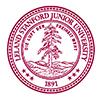The New York Times: The "What is it Called" Economy

Arun Sundararajan, author of the new book “The Sharing Economy: The End of Employment and the Rise of Crowd-Based Capitalism,” said he chose that term for his title because so many people use it. Yet Mr. Sundararajan, a professor at New York University’s Stern School of Business, actually prefers “crowd-based capitalism,” because a crowd of consumers obtains services by connecting, via a platform, with a crowd of suppliers… (more)
The Wall Street Journal: Sharing Economy Expert Says Social Safety Net Must Be Revamped

Arun Sundararajan says his latest book, The Sharing Economy: The End of Employment and the Rise of Crowd-Based Capitalism, is fundamentally optimistic. Yet Dr. Sundararajan, a professor at New York University’s Stern School of Business, says there will be winners and losers in the emerging digital economy, and says the public must rethink the social safety net and find ways to fund it … (more)
TED: Change is good? Exchange is better

But one man believes that the real drama of the sharing economy is yet to come — and has the power to revolutionize work and transform culture. In his new book The Sharing Economy: The End of Employment and the Rise of Crowd-Based Capitalism, published this week by MIT Press, Arun Sundararajan sketches out two scenarios for the future of work. … (more)
The Washington Post: What happens when we all become our own bosses?

Arun Sundararajan believes in this second vision — or, at least, the idea that the first is not inevitable, that we might still redesign benefits and labor protections that would leverage the next fundamental shift in the economy for broad good. His case for optimism in his new book, “The Sharing Economy: The end of employment and the rise of crowd-based capitalism,” is compelling in large part because it comes from a business-school wonk and not a “sharing!” proselytizer devoted to the literal meaning of the word … (more)
Bloomberg: Secrets of the Sharing Economy

It goes by many names: the “sharing economy,” the “gig economy,” the “on-demand economy." Arun Sundararajan, a professor at New York University’s Stern School of Business who has been studying the phenomenon for several years, favors “crowd-based capitalism.” But he compromised for the book he’s just written, titling it “The Sharing Economy: The End of Employment and the Rise of Crowd-Based Capitalism”… (more)
TIME: How the Gig Economy Could Save Capitalism

In the meantime, I’m reading NYU Stern School professor Arun Sundararajan’s new contribution to the debate, entitled “The Sharing Economy.” “The shift back to crowd-based capitalism will be fundamentally empowering for labor,” argues Sundararajan, “because it moves the current system from big employer/employee relationships, to a smaller, more entrepreneurial system.” … (more)
Fortune: What Governments Can Learn From Airbnb And the Sharing Economy (book excerpt)


Arun Sundararajan is a professor of business at New York University. This excerpt is from his new book, The Sharing Economy, which published in June 2016 … (more)
Quartz: The author of “The Sharing Economy” on Uber, China, and the future of work

Arun Sundararajan, a professor at New York University’s Stern School of Business, seeks to answer all these questions in a new book, The Sharing Economy: The End of Employment and the Rise of Crowd-Based Capitalism, a sweeping survey of today’s economic model and the companies changing it. Quartz caught up with Sundararajan to discuss his book, the greatest innovations to come out of Uber, and whether we’ll ever stop calling it “the sharing economy” … (more)
The Atlantic: What Should the ‘Sharing Economy’ Really Be Called

“It may be a consequence of the fact that the label is being used to describe a pretty broad range of things that don’t necessarily all look like each other,” said Arun Sundararajan, a professor at New York University and the author of the forthcoming book The Sharing Economy. AirBnB, for example, is an online apartment-rental platform, Uber is an on-demand car service, and TaskRabbit is an online labor marketplace. “The sharing economy” often also includes peer-to-peer lending platforms and crowdfunding sites with varying profit models … (more)
Masters in Business: Interview With Arun Sundararajan

Bloomberg View columnist Barry Ritholtz interviews Arun Sundararajan, who is a professor of business at New York University, for his "Masters in Business" series. Sundararajan is also the author of the book "The Sharing Economy"... (listen)
a16z Podcast: An Economics Take on the Sharing Economy

Because it’s a new model for (crowd-based) capitalism — one where we’re increasing the segment of the population that owns the means of production. Or… have we just shifted value from traditional institutions to the platforms instead? In this episode of the a16z Podcast, Sundararajan shares the latest findings, economics research, and more from his new book on The Sharing Economy: The End of Employment and the Rise of Crowd-Based Capitalism... (listen)
Curious Minds: Arun Sundararajan on The Sharing Economy

In his book, The Sharing Economy: The End of Employment and the Rise of Crowd-based Capitalism, NYU Stern Professor Arun Sundararajan provides the context and the history for how we got here. He also paints a picture for where we are headed, particularly when it comes to labor and safety policies and regulations... (listen)
Smart People Podcast: Arun Sundararajan﹣The Sharing Economy

As peer-to-peer commercial exchange blurs the lines between the personal and the professional, The Sharing Economy: The End of Employment and the Rise of Crowd-Based Capitalism shows us how the economy, government regulation, employment, and our social fabric will change... (listen)
Seeing Around Corners: The End of Employment

Last month I sat down with Dr. Arun Sundararajan, NYU Stern professor and author of The Sharing Economy: The End of Employment and the Rise of Crowd-Based Capitalism. Over the course of our spirited discussion, we touched on the emergence of hybrid institutions and the ongoing tug-of-war between community and brands… (listen)
Charlie Rose: The Sharing Economy

A conversation on the sharing economy with professor Arun Sundararajan, C.E.O. Brad Hargreaves of Common, and author Rana Foroohar... (watch)
NPR: The Diane Rehm Show
“The Sharing Economy” may be a misnomer. According to expert Arun Sundararajan, this model — from Airbnb and Uber to Etsy and Taskrabbit — is more like “crowd-based capitalism.” And it’s changing our country’s economy and how we think about employment... (listen)
Bloomberg Markets: Uber, Didi, and the Fight for the Future of Mobility

Arun Sundararajan, author of "The Sharing Economy," talks about why Uber stands alone among the tech unicorns what the company and its main rival Didi mean to the sharing economy... (watch)
NPR: Marketplace Tech with Ben Johnson
On today's show, we'll talk about Mark Zuckerberg's plans to do a live Q & A on Tuesday with folks from around the world; interview author Arun Sundararajan about his new book "The Sharing Economy: The End of Employment and the Rise of Crowd-Based Capitalism"... (listen)
The Bloomberg Advantage: The Sharing Economy

Arun Sundararajan, Professor, Leonard N. Stern School of Business, discussing his book "The Sharing Economy: The End of Employment and the Rise of Crowd-Based Capitalism... (listen)
The Financial Times

The words “sharing economy” seem to be everywhere. But rarely is it clear what this phrase means. Even less clear is what it portends for workers, consumers and the economy. Now is a good time, then, for this book, The Sharing Economy, in which NYU professor Arun Sundararajan takes on a central question: what does this new form of economic exchange mean for the future of capitalism?… (more)
The Chronicle of Higher Education

In his new book, The Sharing Economy, Arun Sundararajan, a professor in New York University’s Stern School of Business, argues that the border between market exchange and social reciprocity is becoming more porous than ever. Sundararajan sums things up with a wonderfully intriguing proposition: "Some of the shifts we will see in capitalist exchange over the coming years will reflect a reintegration of gift economies into a system that has become inefficiently impersonal and commercial."(more)
International Monetary Fund

Sharing economy expert and New York University Stern School of Business professor Arun Sundararajan tackles the myriad issues these developments have spawned in his path-breaking book. Sundararajan knows his stuff. He’s an award-winning scholar who writes with a clarity that masks the complexity of his subject... (more)
Management Today

Long before the ripples of the sharing economy rolled almost daily across the pages of The New York Times and the Guardian, NYU professor Arun Sundararajan knew there was a tidal wave coming. He has become the sharing economy's most visible public intellectual. So it was with excitement that I picked up his debut book on the subject. Sundararajan opens with a superb overview of the sharing economy's intellectual backdrop… (more)
Stanford Social Innovation Review

The Sharing Economy, by Arun Sundararajan, a professor at New York University’s Stern School of Business, is a welcome arrival. Sundararajan offers a valuable analysis of how this new economy is reshaping society, creating more decentralized systems, and raising questions about how to build trust within them… (more)
strategy+business

This smartphone-enabled, venture capital–fueled phenomenon cries out for a biography, a taxonomy, and an impact analysis. In The Sharing Economy, Sundararajan supplies all of those things… (more)